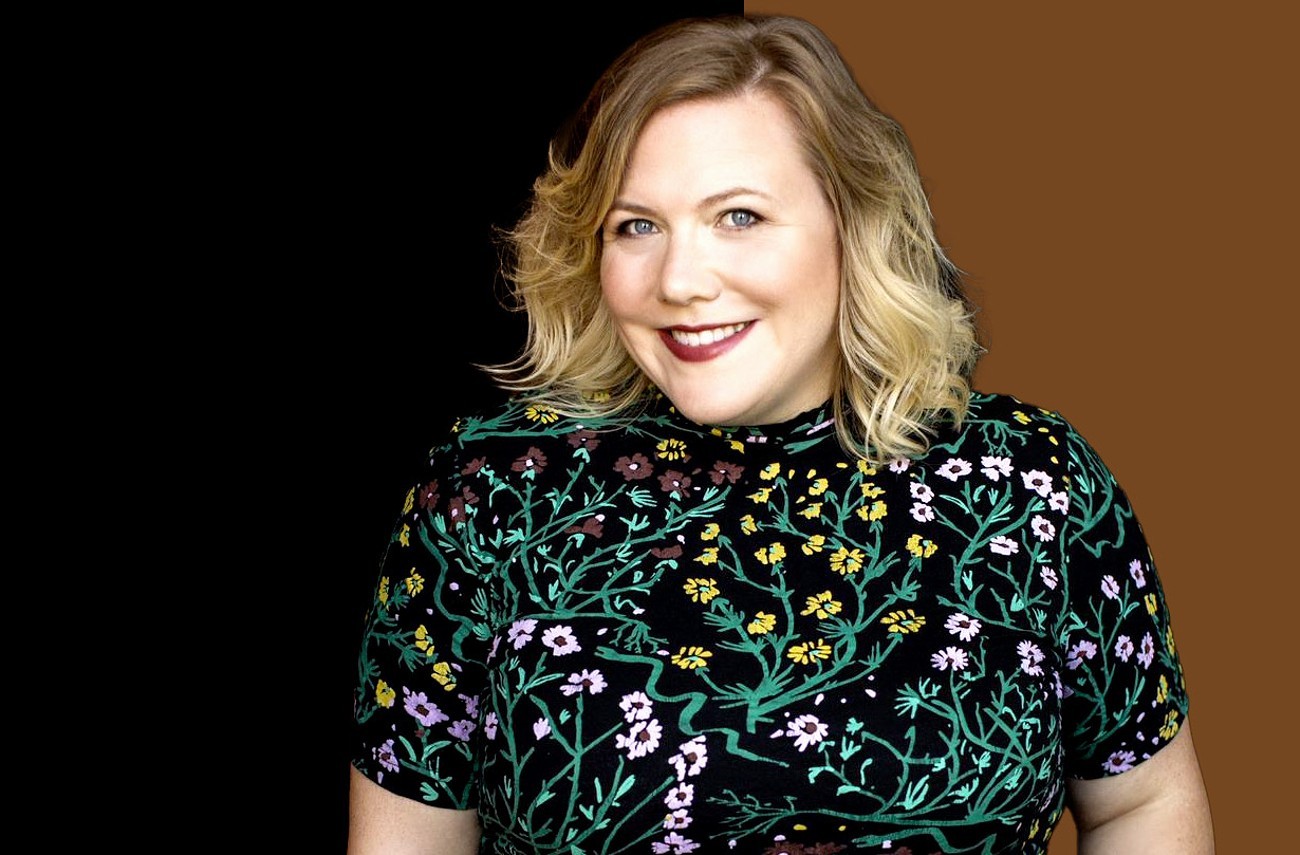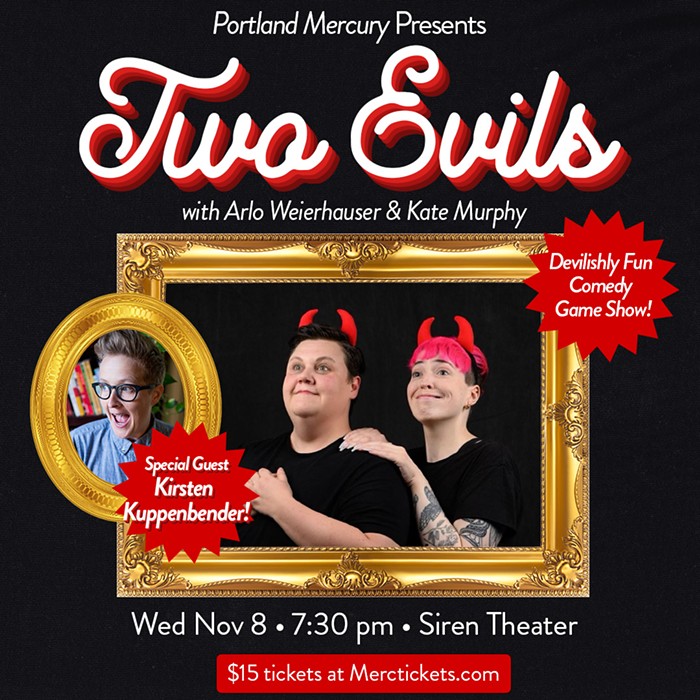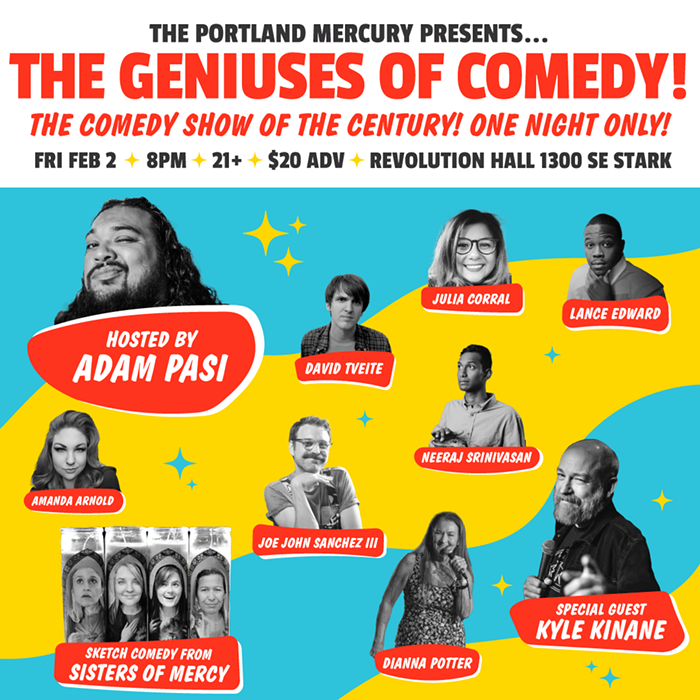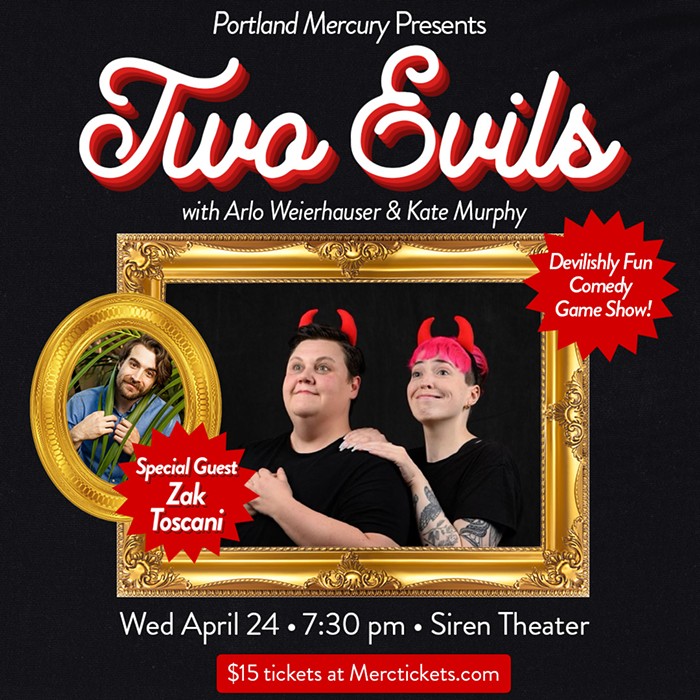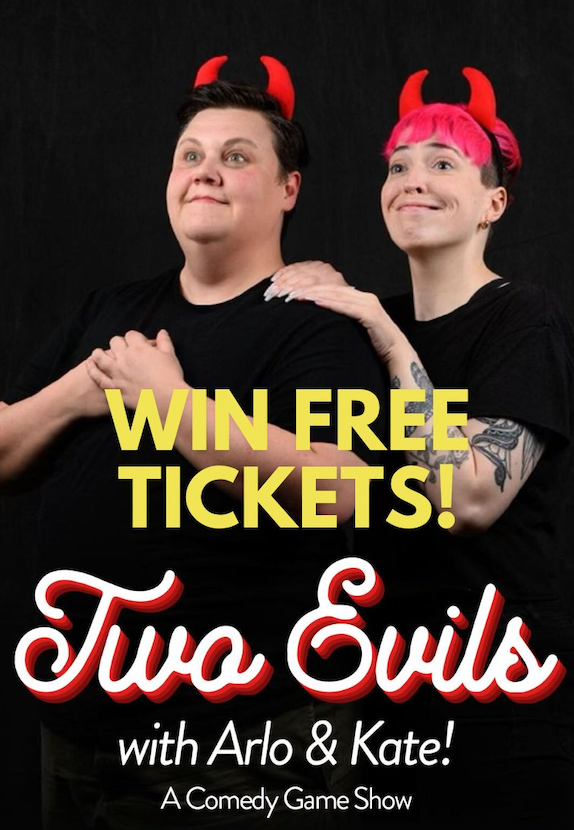[As author, Shrill-creator, and former writer for our sister publication The Stranger, Lindy West will soon grace Portland with her Every Castle, Ranked tour, please enjoy this recent interview from our aforementioned sister publication. You may also enjoy her—recently announced—other tour dates. -eds]
I never would've asked her—to her face—but ever since Lindy West's bestselling nonfiction book Shrill: Notes from a Loud Woman was adapted into a Hulu series loosely based on her life, I've always wondered why she didn't play the lead role herself.
Aidy Bryant was brilliant, of course. She was nominated for an Emmy for the role. But having worked with West at The Stranger for years, including the years that inspired much of Shrill, I found her to be just as magnetic, relatable, and lovable as any Hollywood version.
West inadvertently makes sense of that mystery in her new comedy show Every Castle, Ranked, which she debuted at the Neptune in Seattle. For years, people have seen West as a star—she's the author of multiple popular books, she has regularly contributed thought-provoking opinion columns to The Guardian and to the New York Times, she has a successful newsletter (Butt News) in which she wrote 10,000 words about The Fellowship of the Ring.
But, as we learn in her first solo comedy show, while West's charisma may come naturally, her confidence to share it with the world does not. But also, she loves castles! We also learn so much about castles. And toilets. There is some toilet talk.
I spoke to West after the show's debut performance, and wanted to ask her so many questions about all the castles and her ranking system, but the show is also best-approached spoiler free. So we talked about feelings instead.
THE STRANGER: I feel like Every Castle, Ranked is the kind of comedy show or performance where the less people know going into it the better. Would you agree?
LINDY WEST: Yeah, I do. I like the way that it unfolds, hopefully in some unexpected directions. I like the little misdirect of people going and assuming that this is about castles, which it is, and then finding a lot more inside. Like a treasure room in a castle!
It's about castles, it's about poop, it's about butts. It's everything you would expect from Lindy West, the comedy writer. But then it is also really tender and introspective. You talked about what happened after Shrill was canceled. I think people have this assumption—I sometimes have this assumption—that once you hit a certain level of success, it’s smooth sailing. Once you're successful, you just stay successful. But you had to continue really working for it.
Oh yeah, it's feast and famine—you have to hustle all the time. I'm sure once you get to a certain point, or if you have a certain kind of cachet, maybe more opportunities are thrown at you. I say that and I have lots of opportunities, I have lots of projects in the works—I do have another book that I'm working on, I have other TV shows that I'm developing—but all of that is precarious. At any point, people can lose interest in you.
After years of working within these huge industries that can be really fickle, you don't know when you're gonna go out of fashion, especially as a woman—at a certain point am I going to be past my expiration date? No one cares what a 45-year-old woman has to say. When does that happen? I'm 41.
Part of the reason I decided to do the show was thinking about that and thinking about, 'What if I made something that was 100% on my terms and is just me?' I wanted to make something with no infrastructure, that was purely me and my husband, Aham [Oluo], we wrote it together. We fully co-wrote this show, and he did most of the work putting the slideshow together and editing those together. If there had been a program, it would have said written by Lindy and Aham. [Laughs]
It's wonderful and scary to rely on other people and rely on industries like publishing and television for your livelihood, and I wanted to see if I could rely on just myself.
If I remember correctly, you dabbled in stand-up at one point. It was when Seattle's comedy scene was also quite toxic, like, they kept debating whether or not somebody should be allowed to tell a rape joke. It just wasn't a welcoming community.
Yeah, it wasn't the toxicity. I had great friends in comedy and there were wonderful people working in Seattle comedy at that time. The reason I never really did it is because I didn't have the confidence. It was really scary, and it's a lot of work to get good at stand-up. I just didn't think I belonged there. I feel like there's a certain amount of getting good at comedy that is posturing and being like, 'I deserve to be here, and I'm going to stay here and fail over and over and over again in front of people until I figure this out.' And I just didn't have the constitution to do it, I think.
That's kind of how I ended up here. I have done lots of live performance stuff, kind of. I hosted the Moth for a long time in Seattle, and I really loved it, and I was really good at it. I was thinking about when I used to host the Moth, how good I felt on stage, and how totally at ease I was. It's hard for me to say that I was good at something, but if I was good at one thing, I was good at hosting the Moth. I was the best version of myself. I've always thought, 'Why did I just drop that?' I feel like live performance is something that I should leave to people who are more special than me. It's not mine. Some people really have that "thing," and Aham has always been like, 'You have that thing!' And I'm like no, no, not me. [Laughs] You're mistaken.
That belief has really held me back, I think. There's a version of my life where I play me on Shrill, you know what I mean? Not that I regret having Aidy [Bryant] do it, because she's magical, but—and maybe this is just what happens when you turn 40—I started thinking, 'What kind of potential have I squandered?'
Even hosting the Moth, it’s like, I’m hosting. It has a little bit of remove from actually being the star. Even saying that, 'being a star,' is embarrassing. [Laughs] I’m so embarrassed to say that phrase. But the conceit of this show was like, what would it feel like to make something for myself to star in? It was a wild experience. And I'm really proud of it. I think it's really good.
Can we talk about your upcoming book, Adult Braces?
I had braces during COVID for two years, and it's just another great metaphor that I have to use because my braces were not cosmetic. They were to fix a cross-bite. I had an invisible defect in my bite that was, like, cracking my teeth.
I was raised under the impression—because this is what my childhood dentist told me—that I had perfect teeth. They were the greatest teeth he had ever seen, and I would never need braces. Come to find out that my teeth are super fucked up actually! And they're, like, cracking into dust. And I needed braces to correct them. Then I started thinking about all of these other things, all of these other ways you start to learn that things about your life that you thought were perfect are actually not, and are being held up by rickety coping mechanisms that you glued together.
I started thinking about all the ways that I needed braces metaphorically in my life. That's what the book is about. During COVID my husband and I restructured our relationship, and now we have a third partner, who's a little angel. And I'm doing all of this soul-searching about my career, what I want to be, and the ways that I've held myself back. And I'm in therapy. I started therapy before COVID, but in therapy, there's this process of discovering patterns that you engage in to make yourself feel safe and realizing the ways that those patterns can negatively impact other people and yourself.
Anyway, we were all trapped in our house for three years, and what was there to do but reevaluate every part of my life? [Laughs] That’s what the book’s about. Trying to meaningfully strap adult braces on all of the malfunctioning systems in my life. But in a funny way!
You can see that in Every Castle, Ranked. You talk about how this—onstage, at the center of attention—is not your ideal way to portray how you’re feeling or who you are. Now that you've done it, how does that feel?
It feels really good. I was really proud of it. I mean, of course, there's a voice in my head that's like, 'Everyone that told you they liked it is lying.' [Laughs] But I don't really think that voice is telling the truth.
I dread doing things like that, and I also feel like it fulfilled something that I have always needed to do, like, I can't not do it. It is a thing that I'm afraid of. I'm afraid of being the star. I really, really resist it. I really don't want to do it. I feel like I'm not supposed to do it. I feel like I'm doing something bad. My therapist would say that that's a sign that you should go toward that thing, you know?
So you've done it. It was great. Can you accept that you're a star now then? Are you prepared for this to launch you into some form of undeniable stardom?
Um, no. No. I can't. The idea is repellent to me. However, if someone said that I'm not a star, I would be enraged. [Laughs] So that's—I live in that duality. I don't know the answer.
Lindy West performs Every Castle, Ranked Fri Sept 9 at Aladdin Theater, 3017 SE Milwaukie, 8 pm, $25, tickets here, 21+
